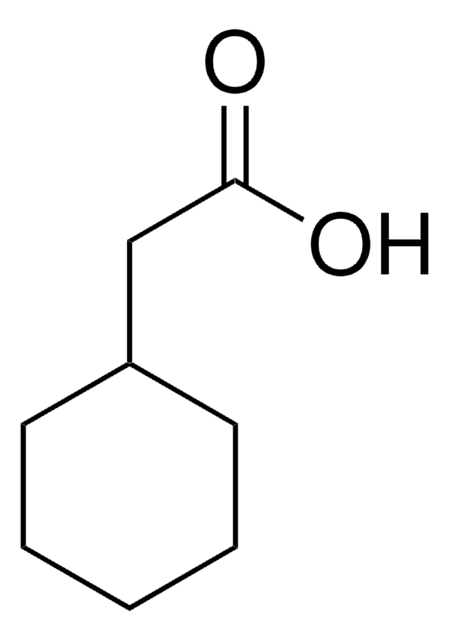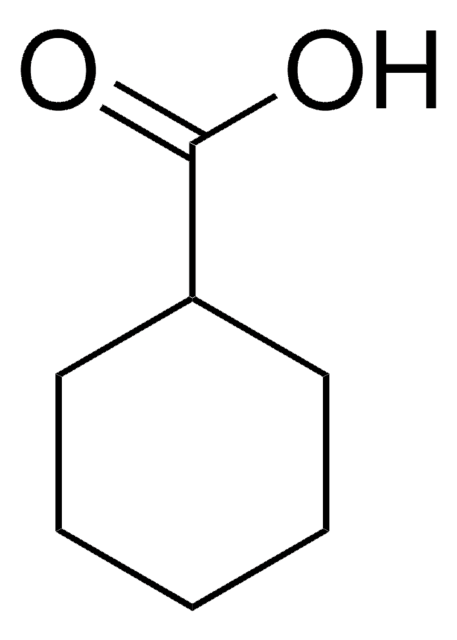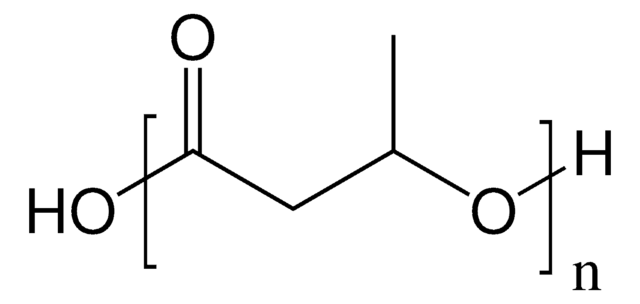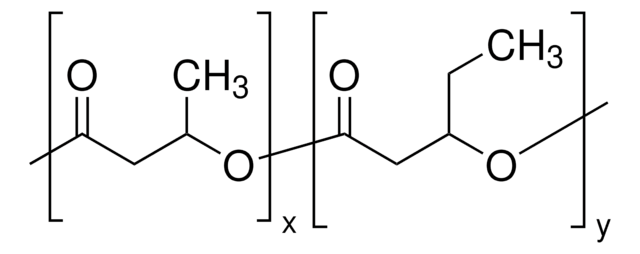W234702
Cyclohexaneacetic acid
≥98%
Synonym(s):
Cyclohexylacetic acid
About This Item
Recommended Products
biological source
synthetic
Quality Level
reg. compliance
FDA 21 CFR 117
FDA 21 CFR 172.515
Assay
≥98%
refractive index
n20/D 1.463 (lit.)
bp
242-244 °C (lit.)
mp
28-32 °C (lit.)
density
1.007 g/mL at 25 °C (lit.)
application(s)
flavors and fragrances
Documentation
see Safety & Documentation for available documents
food allergen
no known allergens
Organoleptic
fatty; musty; acidic; cheesy
SMILES string
OC(=O)CC1CCCCC1
InChI
1S/C8H14O2/c9-8(10)6-7-4-2-1-3-5-7/h7H,1-6H2,(H,9,10)
InChI key
LJOODBDWMQKMFB-UHFFFAOYSA-N
Looking for similar products? Visit Product Comparison Guide
General description
Signal Word
Warning
Hazard Statements
Precautionary Statements
Hazard Classifications
Eye Irrit. 2 - Skin Irrit. 2 - STOT SE 3
Target Organs
Respiratory system
Storage Class Code
11 - Combustible Solids
WGK
WGK 3
Flash Point(F)
235.4 °F - closed cup
Flash Point(C)
113 °C - closed cup
Personal Protective Equipment
Choose from one of the most recent versions:
Already Own This Product?
Find documentation for the products that you have recently purchased in the Document Library.
Our team of scientists has experience in all areas of research including Life Science, Material Science, Chemical Synthesis, Chromatography, Analytical and many others.
Contact Technical Service![Poly[(R)-3-hydroxybutyric acid] natural origin](/deepweb/assets/sigmaaldrich/product/structures/129/476/7d1c924b-f644-4889-a2d6-d7a923ce382c/640/7d1c924b-f644-4889-a2d6-d7a923ce382c.png)









